Can I put solar panels on my condo? As energy-savvy consumers and condo owners, you may have asked yourself: can I put solar panels on my condo? This is an important question that deserves a thorough answer. After all, most of us want to reduce our energy costs while also contributing in some way towards a more sustainable future for ourselves and the planet.
Yes, you can install solar panels on your condo. However, it involves certain considerations and permissions. You will need to get the approval of your Homeowner’s Association (HOA) and ensure the shared roof can accommodate the installation.
From determining if your condo is eligible for such an installation to getting access to tax incentives, read on for answers about how you can integrate eco-friendly renewable sources into your lifestyle today!
Overview of solar panel installation in condos-Can I put solar panels on my condo?
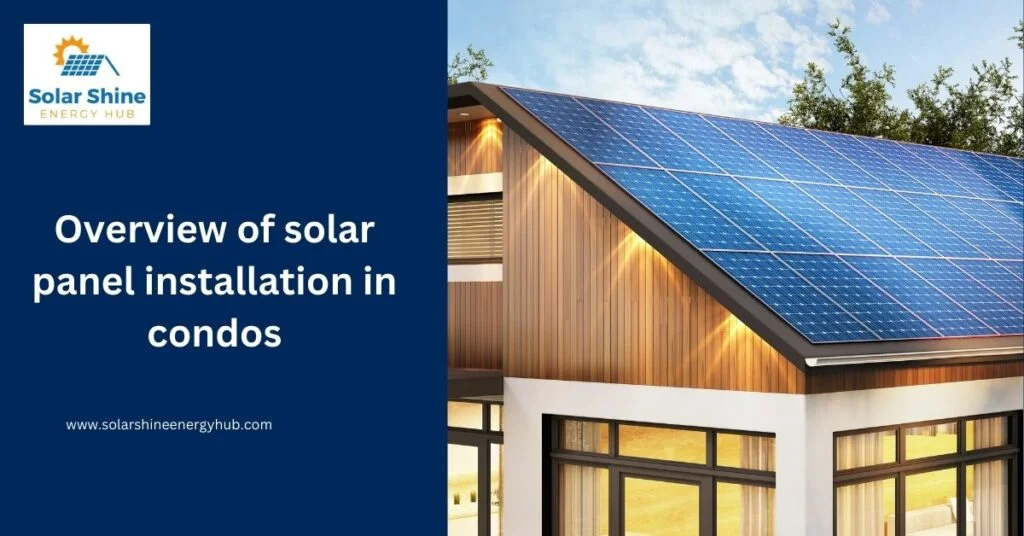
- The Physical Feasibility: Assess the structural integrity and orientation of the shared roof of your condo for solar panel installation.
- Securing Permissions: Obtain necessary approvals from your Homeowner’s Association (HOA) and meet any local building regulations.
- Cost and Financing: Understand the cost of installation, maintenance, and potential financing options, such as loans or tax incentives.
- Selecting a Solar Installer: Research and choose a reliable solar installer who specializes in condo installations and can navigate condominium rules.
Advantages and disadvantages of installing solar panels in condos
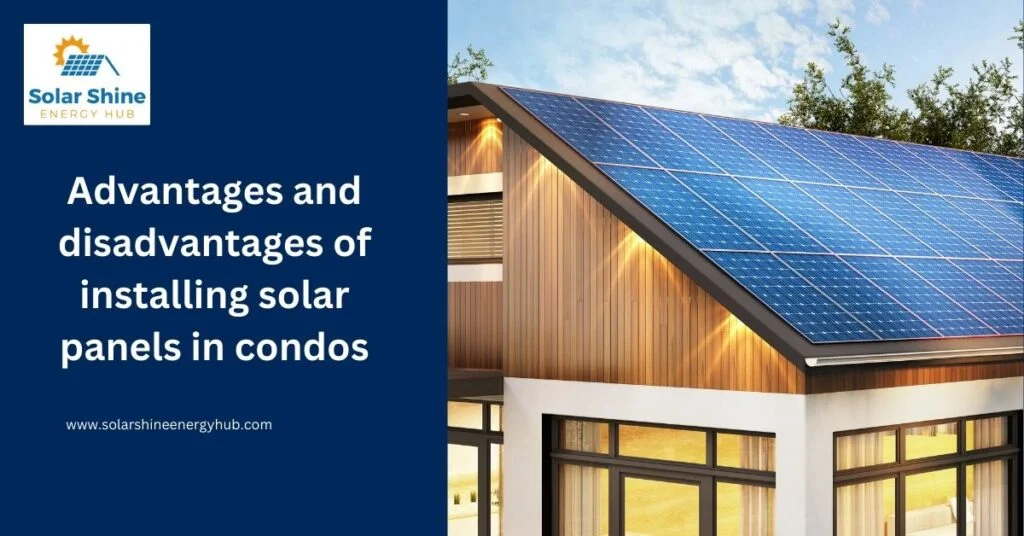
Advantages:
- Energy Savings: Installing solar panels can significantly reduce your monthly electricity bills, leading to substantial long-term savings.
- Environmental Impact: Solar panels contribute to a more sustainable future by reducing carbon emissions and reliance on fossil fuels.
Disadvantages:
- Initial Cost: The upfront costs of purchasing and installing solar panels can be high, although they may be offset by long-term energy savings and tax incentives.
- Dependent on Weather: Solar panel efficiency can be affected by weather conditions, as they generate less power on cloudy or rainy days.
How to determine if your condo is eligible for solar installation
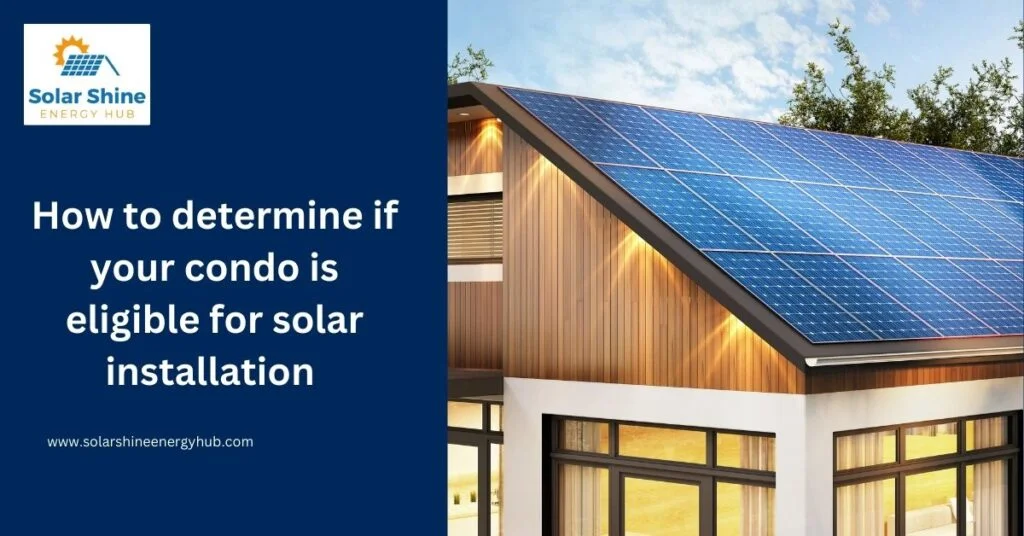
- Assess the Roof: Evaluate the structural integrity and orientation of your condo’s roof about the sun’s path.
- Check HOA Guidelines: Review your Homeowner’s Association (HOA) rules regarding exterior alterations or additions.
- Local Codes and Regulations: Investigate local building codes, zoning laws, and any other municipal regulations related to solar installations.
- Energy Usage: Consider your current energy usage to evaluate the potential benefits and cost-effectiveness of a solar panel system.
Different types of solar systems and components available for condos
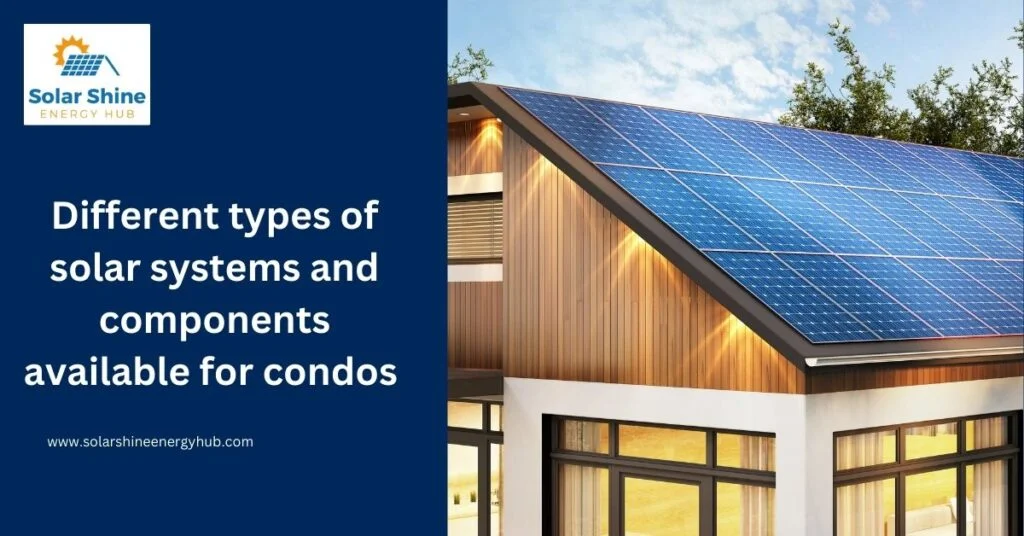
- Solar Photovoltaic (PV) Systems: This common type of solar system converts sunlight directly into electricity using PV cells.
- Solar Thermal Systems: These harness sunlight to generate heat, and are often used for water heating or space heating.
- Passive Solar Systems: Using natural processes, these systems capture, store, and distribute solar energy without mechanical or electrical devices.
- Hybrid Solar Systems: These combine solar PV and thermal technologies, providing both heat and electricity.
Recommended steps for a successful solar panel installation in a condo
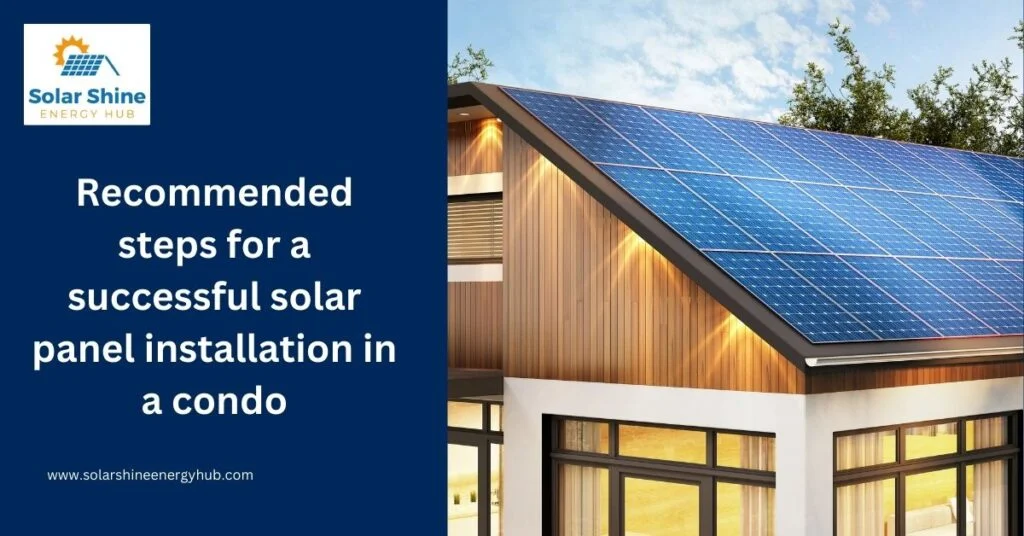
- Consult a Solar Expert: Engage a professional to assess your condo’s suitability for solar power. They can provide a detailed analysis of potential energy savings and practical implementation strategies.
- Proposal to the HOA: Prepare a comprehensive proposal detailing the benefits of solar power and how it aligns with the community’s sustainability goals. This should alleviate concerns and garner support.
- Permit and Paperwork: Ensure all necessary permits, certifications, and paperwork are in order. This includes building permits, interconnection agreements with your utility, and any other relevant documents.
- Installation and Maintenance: Choose a reputable solar installation company. After installation, regular maintenance checks will ensure the system operates at peak efficiency, prolonging its lifespan.
Cost benefits and financial incentives associated with condo solar installations
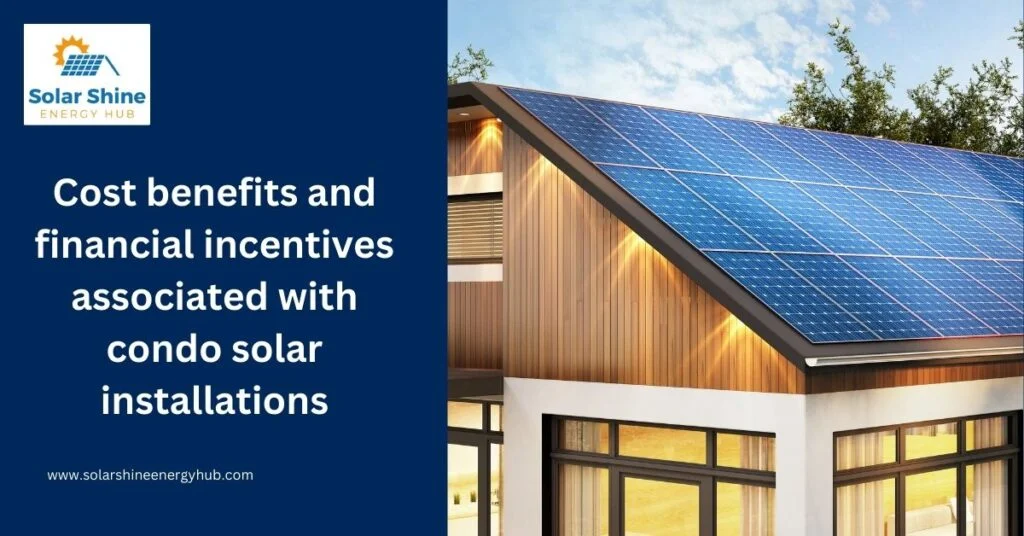
- Reduced Energy Bills: Solar installations significantly cut down on monthly energy expenses, providing financial relief to condo owners.
- Higher Property Value: Properties equipped with solar panels often have higher market values, making them an excellent investment.
- Federal Tax Credit: The U.S. federal government offers a tax credit for solar energy systems, providing a substantial financial incentive.
- Environmental Impact: Transitioning to solar energy reduces carbon footprint, contributing to environmental conservation and sustainability.
Conclusion of Can I put solar panels on my condo
Embracing solar energy in your condo is more than just a financial decision; it’s a commitment to a sustainable future. As condo owners, every step you take towards adopting renewable energy counts. With the right planning and execution, you can enjoy the economic and environmental benefits of solar power. Together, we can create greener communities and a healthier planet. It’s time to shine with solar.